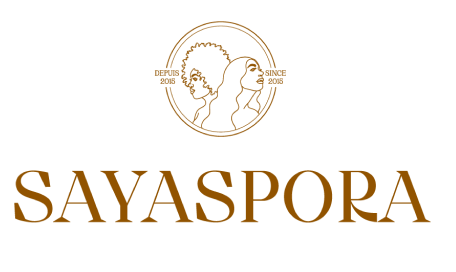May 18, 2021

By Rae Mdeza
Tokenism is a word flung around left and right by overly woke and politically correct individuals but what does it actually mean? It’s important to remember that before words are run into the ground under the tread of the politically correct bandwagon, they actually have significant meaning and came to the forefront for good reason.
So, let’s start with what is tokenism? Tokenism as defined by Miriam Webster as: “the policy or practice of making only a symbolic effort (as to desegregate).”* Another definition I really enjoy is provided by The Wondry: “the practice of doing something (such as hiring a person who belongs to a minority group) only to prevent criticism and give the appearance that people are being treated fairly”.**
Now that we understand what tokenism is, let’s talk about how and why I decided to write this piece. We’re aware of tokenism in the workplace and within large companies but what about tokenism in your personal friend group. Have you ever considered whether or not you are the token friend? I grew up in a melting pot and that has seasoned my friend group really well; I don’t have a specific clique and I love that about all my friends. We each come from different backgrounds and have great respect for one another and in that we are able to share and learn about ourselves. I recently had the opportunity to have a look into my mother’s friendship group and specifically with one woman. My mother has been friends with this lady for decades, their friendship started when I was a toddler, I’m 24 now. My mother is a woman of colour and her friend is white, apart from their shared womanhood they also speak the same language – Afrikaans – and are in the same business field. This is how their friendship started, through business. Earlier this year, over the Easter weekend, I had afternoon lunch with my mother’s friend. A few years prior to this, I had mentioned to my mother how I wasn’t particularly fond of her friend because I felt that she was racist. Our interaction over lunch proved that. She would always say in a jocular way that my mother “was not like the other blacks” and that was the reason why their friendship worked.
I took the opportunity to engage in conversation and ask her how she felt about people of colour, because I was aware that although I was welcomed in her home it may not be the same for someone else who looked like me. I also thought it would be a good idea to engage in actual dialogue and not a combative argument. We talked about her upbringing on a farm in the early 60’s in Apartheid South Africa where she had black friends and they all played together and no one was made to feel excluded. She also tells about a friend of hers who was born of a white father and black mother and the confusion her friend experienced growing up not knowing where they fit in. We talked for hours and I gained a better understanding of her and why her mind was programmed the way it was. She is a white woman, who received all the privilege white people do. Being friends with black people didn’t have an adverse effect on her or bring any consequences, thus justifying her ability to stand on the opposite side of the fence, with black and brown friends, and still be comfortable with feeling and thinking racist thoughts about people of colour. I left her home enlightened but certain that I would prefer to not return.
The woman is my mother’s friend not mine, so there is no love lost for me but their friendship got me thinking, “Is my mother her token friend?” She has never treated my mother in a manner that is disrespectful or cruel, that’s not to say she doesn’t treat other people of colour the same way, I’ve never been around for it and so I cannot speak to it.
So what does one do when they think they are the token friend?
Are you the Queer friend? Are you the Muslim friend? Are you the Black/Brown friend? Are you their first Black girlfriend/boyfriend? Are you the Asian friend? Has it ever crossed your mind that you may be the token friend? The friend used for “performative wokeness” and as a means to justify their absurd comments? We all know the infamous statement, “BUT I HAVE BLACK FRIENDS”, that usually follows when being called out on having said something racist.
Now the question is, “What do I do if I am the token friend?”
Honestly, I don’t know. There are several “How To’s” out there on what can be done in the workplace but what about on the ground, in our small, close knit circles. What do we do then?
My best advice would be:
First, observe. People who are pretending always slip up in some way. Listen to the things they say about people who look like you. Listen to how they say certain things or how they react when certain conversations are brought up.
Secondly, be patient. Don’t be so quick to vilify your friend. It could be that in their life’s journey they haven’t had the opportunity to have a friend that looks like you or practices a religion that is not their own. People are having new experiences every day and your friendship may just be something they have never experienced before.
Thirdly, and only if you’re willing, listen to them and teach them. It would be fair to assume that the friendship arose from a genuine connection between the two of you and now you are given the opportunity to learn about each other. Like any relationship, we have to take the time to listen, learn, and teach. And I know that oftentimes the corporate world will feign ignorance and ask to be educated but this is different. If we want to build lasting relationships, and expand our friendship groups beyond just our backyards we have to be open to having these conversations.
It’s important to remember that although we play a part in society and a cultural ecosystem as a whole, we still have our own inner society and cultural ecosystems. It would be best, in my opinion, to have them filled with wonderful people from all kinds of backgrounds and upbringings, with the critical condition that there is no hate towards each other and others. I guarantee your perspective on life will be improved.
I’d like to close with this as something to remember and it may help us find the balance in all of this – even though the owl does not pose a threat to the eagle, the mouse may have a different opinion and we should always take into consideration the mouse.
*https://www.merriam-webster.com/dictionary/tokenism
**https://business.vanderbilt.edu/news/2018/02/26/tokenism-in-the-workplace/

Rae Mdeza
Writer
Images credits:
Image by @mela_nation





